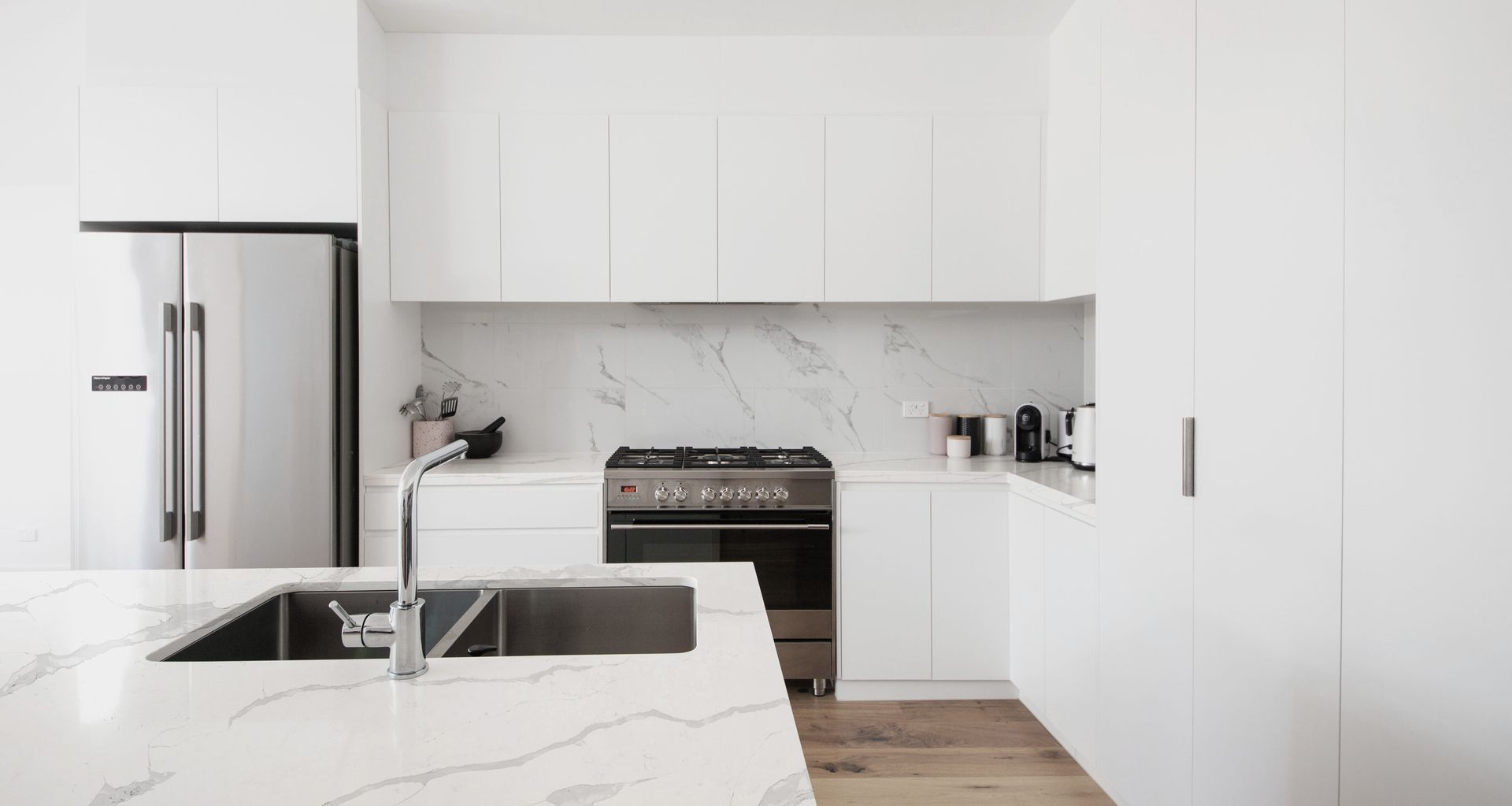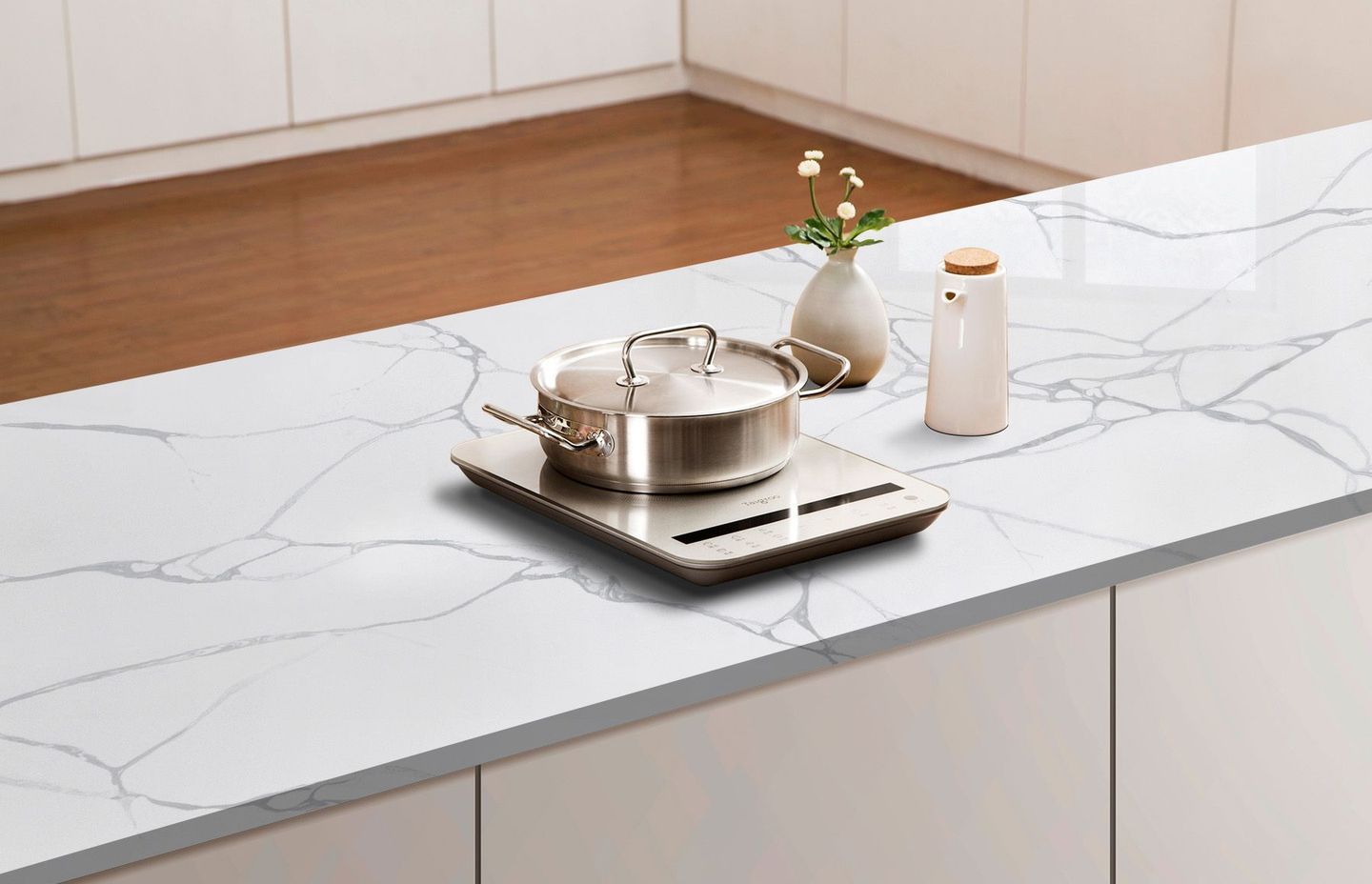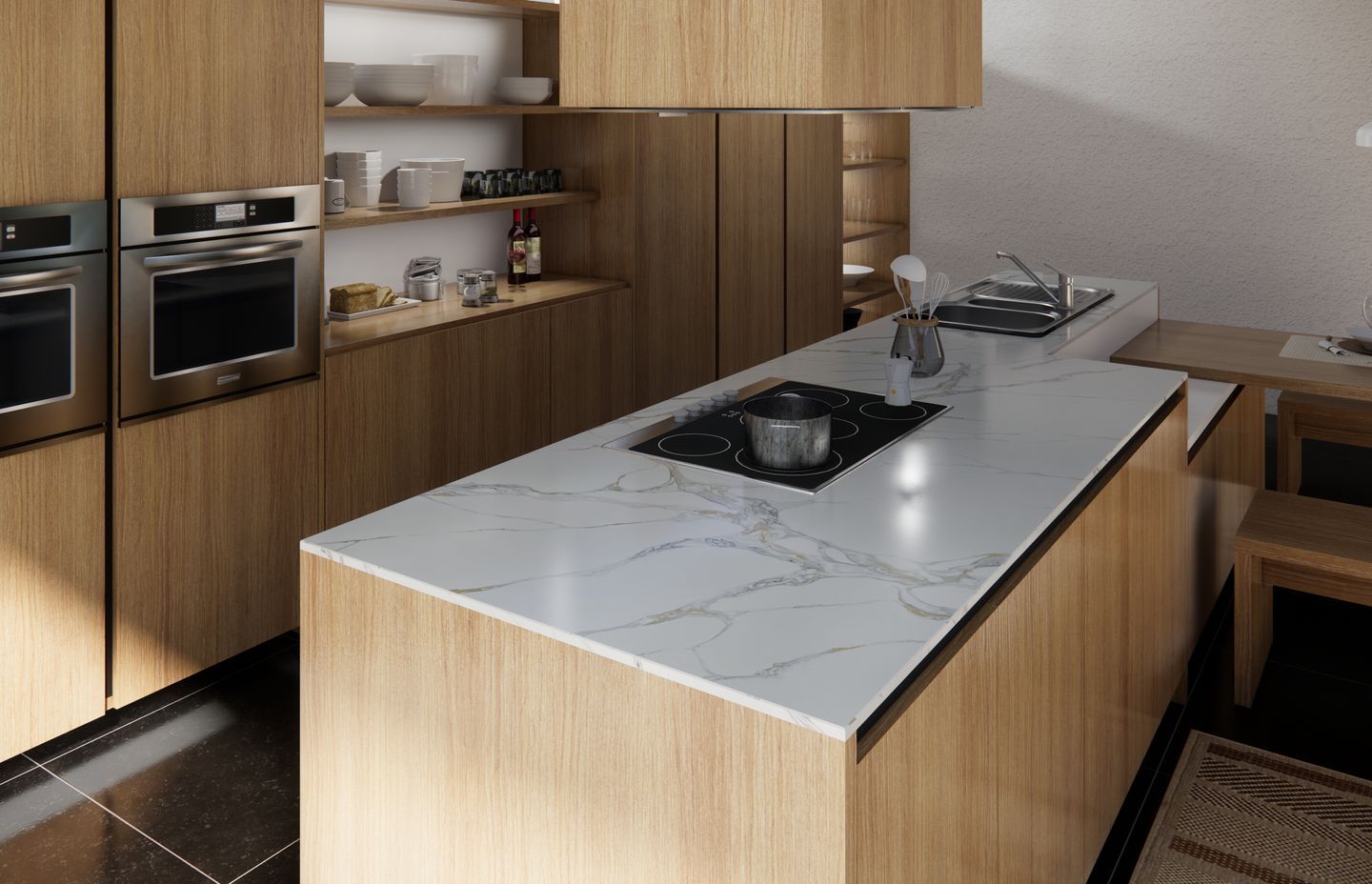The latest in engineered stone benchtops
Written by
02 October 2022
•
4 min read

One of nature's hardest minerals makes up the majority of ingredients found in engineered stone slabs: quartz. With the addition of ingredients such as shells, glass, polymer resins and colourant additives, a huge range of finishes can be created.
This structure gives engineered stone a Mohs hardness of 6–7 and a scratch-resistant surface. A measurement of a mineral’s relative resistance to scratching, the Mohs scale is a good indication to durability – marble, for example, rates as a 3 on the Mohs hardness scale. Engineered stone is also non-porous, making it an ideal choice for areas exposed to water, such as kitchens, bathrooms and laundries.
It certainly is a quality product – and one that forms the basis of Y J Stone.
“It doesn't matter whether our stones are used in a $10,000 kitchen, or a $150,000 kitchen. We expect the quality of the stone to be the same, regardless of the kitchen it’s going in,” says Y J Stone’s director, Paul Nicholson.
The same could be said for the brand’s handmade stainless steel undermount sinks: “We make sure people are getting the best from our products, and certainly getting that longevity and the product doing what it's supposed to do for them.”
Paul shares the types of engineered stone on offer at Y J Stone and what’s on trend for Kiwi homes when it comes to benchtops.
We expect the quality of the stone to be the same, regardless of the kitchen it’s going in.

What are the options of quartz engineered stone at Y J Stone?
We have three levels of quartz stone available to the market. We have our ultimate range, which is made up of four colours – colours that have been in the market for a long time. Then we have our superior range. The stones in this range have a bit more pattern and a bit more happening in them. And then we have our transcendent range, which is the more premium marble type of stones where people are looking for a lot more in terms of the colour and patterns found in the benchtop, rather than just a uniform pattern through the stone.
Which colour and patterns have been particularly popular lately?
Our latest colour, which arrives in the next few weeks, is already pre-selling – people are buying off our sample in our showroom. So it's the new colours that are coming out onto the market now, such as this one, that are getting very good reception.
It’s very different from trying to replicate a marble; rather it’s white based with an almost smoky look going through the stone. People have been very receptive to this type of look this year.

Can engineered stone be used in other areas of the home to achieve a cohesive design?
What we're seeing a lot now is the use of engineered stone not just with benchtops, but continued up to the splashbacks to keep the one colour. Also, carrying that pattern through to the bathrooms and especially the laundry has been popular.
Some companies are coming back to us where people have done renovations and a year down the track when they get onto their laundry, for example, they come back and ask for that same colour that’s been used in the kitchen. We're seeing a lot more of that now.
Carrying that pattern through to the bathrooms and especially the laundry has been popular.
Can you tell me about Y J Stone’s stainless steel sinks?
Sinks and benchtops, especially in kitchens and laundries, go hand in hand. We supply high quality, handmade, undermount stainless steel sinks.
It means customers can get both from the same source rather than two different suppliers. We don't have a massive range, but we have what you require for a kitchen and laundry.
Why stainless steel?
Stainless steel sinks normally use a stainless steel 304 grade, they’re normally 1.2 millimetres thick and they have an anti-condensation coating on the outside of the bowl as well to prevent condensation dripping into the inside of your cupboards.
They normally come with baffles as well, so if you're pouring water into your sink it’s not generating a lot of noise in the house. It's quite quiet, it's a good quality product.
Explore products from Y J Stone on ArchiPro.